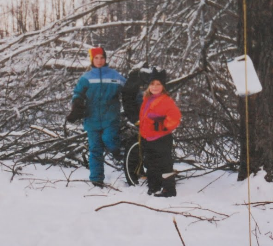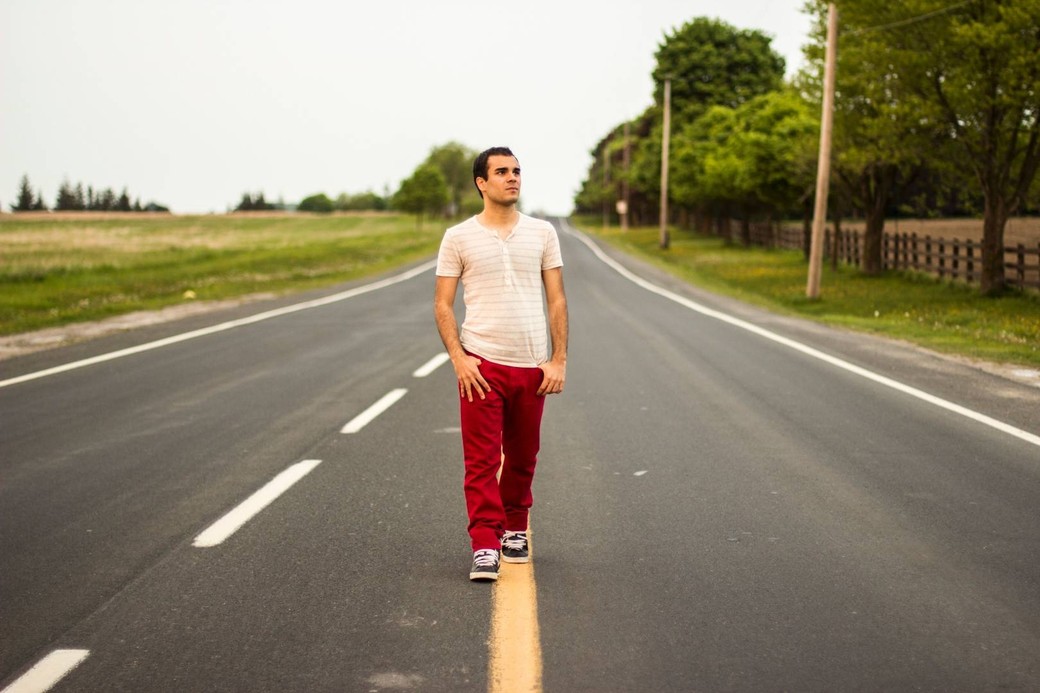
RURAL RANT: Ice Storm—15 Years Ago Today Power was Restored
For my family and me it was 15 years ago today (January 16) when our power was restored after the 1998 ice storm. It actually was the best of times and the worst of times. Rural resilience, not to mention winter paranoia, helped us sail through that trying time. There are a few lessons to be learned from the ice storm, and from all the various disastrous storms nature has unleashed in the years since.
First: Have an alternative heat source. I grew up in a very cold, old, drafty house in Alberta in the 1960s. And I can beat anyone’s “when I was a kid it was so cold” stories—unless you’ve had a snowdrift under your bedroom window—inside the bedroom. We heated by coal stove, and it didn’t matter if we had electricity or not (frequently not). Here all that’s needed is a wood stove (or fireplace, but they’re not nearly as efficient), a clean chimney and a supply of firewood. One of the first things we did when we bought our house initially was install a wood stove and new steel chimney (which we’ve cleaned every fall since). Expensive at the time but that alternative heat system paid for itself, probably within the first year, because we also have a large woodlot and my husband knows how to safely cut dead trees. We have saved many thousands of dollars by supplementing our furnace this way, and during the ice storm the stove was what made us able to stay in our home. So if you’re building or renovating or buying consider installation of some sort of heat source that still works when the power is off. (Some gas appliances offer this option too.)
Second: Be prepared. When my husband and I were young we lived in another old, cold, drafty prairie house, in a yard and up a road that still had the original Rural Electrification wiring (from about 1912). This meant all kinds of weather could disrupt our power supply. We also lived on a road that might not get plowed for a week. As a result I developed storm paranoia. As soon as it looked like high wind (prairies, remember?) or a storm was coming I stocked up on supplies, including food, booze, candles and batteries. You also need cash. During the ice storm the stores nearby ran with generators, oil lamps and handheld calculators so people could pick up needed supplies. And guess what, bank cards and credit cards were instantly and completely useless. Fill the car up with gas. Fill gas cans. A small generator can also be a great help, even if it just runs a few appliances briefly. Something else that may be useful is an old telephone that doesn’t need electricity. Once our phone lines were repaired (which was sooner than the power lines) we could call people and tell them we were okay. Don’t count on cell phones either. During disasters cell phone towers may be ice-coated, knocked down, without power themselves, or unable to handle the volume. Something else we had that few neighbours did was a camping coffee pot. We could percolate coffee on our little stove. People dropped in, even in the evening, and said, “We heard you had coffee.” You do not want to be in caffeine withdrawal during an emergency.

Third: Have lots of water. If you live on a well you need power to run it, meaning you can run out of water very fast. Even if you’re on city water the supply only lasts a certain amount of time. In a serious earthquake (which could definitely happen to Ottawa) that supply may be instantly cut off. I have bottles of water stashed in my laundry room and basement at all times, and when a storm is predicted I save a lot more water, filling every available jug, bottle and large pot. I have a pretty accurate understanding of water use and conservation, but most people are shocked by how much water it takes to do a small thing. Don’t flush unless you must. I also have a few big blocks of ice in my freezer, so that if the power goes out in the summer I can use the fridge like an icebox.
Fourth: You can still have hot water. We heated water (and later melted ice to heat water) on or beside our little woodstove. I constantly rotated the supply—using hot water for a task like washing dishes, while more was heating. By the evenings we had enough hot water to have shallow baths. You don’t have to be dirty just because you can’t use the shower. As more days without power went by we also began using a propane burner we normally use to boil maple syrup. That type of appliance, as well as barbecues, should only be used outdoors. Carbon monoxide poisoning and/or oxygen loss (when the flame has burned all the oxygen in a room out of the air) are very real, dangerous and sometimes undetectable until it’s too late, so err on the side of caution. Also get a CO detector that runs without electricity.
Fifth: Use candles and oil lamps with care. During the ice storm several houses burned down, with most fires started by candles or spilled oil lamps. For myself I don’t like oil lamps. We often had to use kerosene when I was a kid and a tiny spill can easily become a big fire. When using candles you might need several to get the equivalent light. Don’t leave them unattended, don’t use them near curtains or other flammable materials (and I mean far, far away), and don’t use tippy candlesticks. Candlelight is hard to read by, but I remember one very pleasant evening when my family all read books while sitting on the couch with the light of seven candles on a table behind us.
Sixth: Watch out for falling branches, dangerous power lines, bad roads, etc. During a natural disaster of any sort you will be exhausted, stressed and outside your usual element, so before you rush off to do something you’d normally do in a few minutes, stop and assess the hazards (just like the St. John’s Ambulance first aid course advises). Falling branches loaded with ice can kill you. Live power lines dangling or on the ground can kill you. Slippery or blocked roads can kill you.

Seventh: Be prepared to work hard and be tired. During the ice storm supplying water, food and heat to the house every day became a fulltime job. Add in checking on (and helping feed) emergency workers and neighbours, some of whom went without power for much longer than our ten days, plus general stress, and you’ll be exhausted. But truth be told it’s a better kind of exhaustion than that caused by a stressful day at the office.
Eighth: Enjoy it while you can. It’s not corny. We told stories, read books, played board games, went outside, felt independent and empowered, and forged stronger relationships with neighbours. To me I felt that I’d had a brief opportunity to revisit part of my childhood. There’s also the magic of seeing nature’s awesome power. Sometimes you just have to say, “Wow.” One of the best parts was going outside at night. Without the lights of nearby towns, not even Ottawa or Montreal, the sky was brilliant. For a few frigid nights we could see the stars as they were meant to be seen. I was glad when our power was restored, but like a lot of people, I treasure my ice storm memories.









